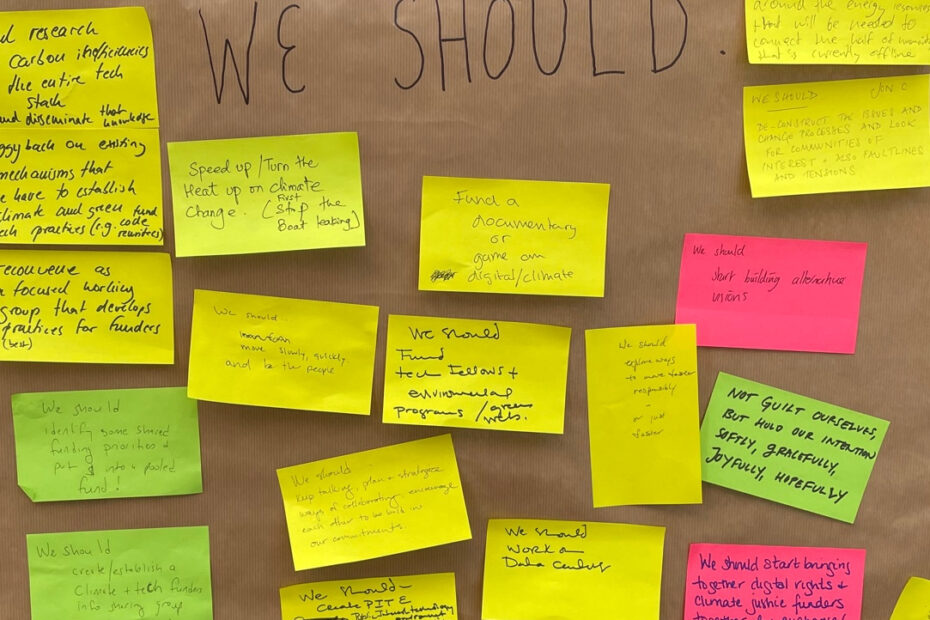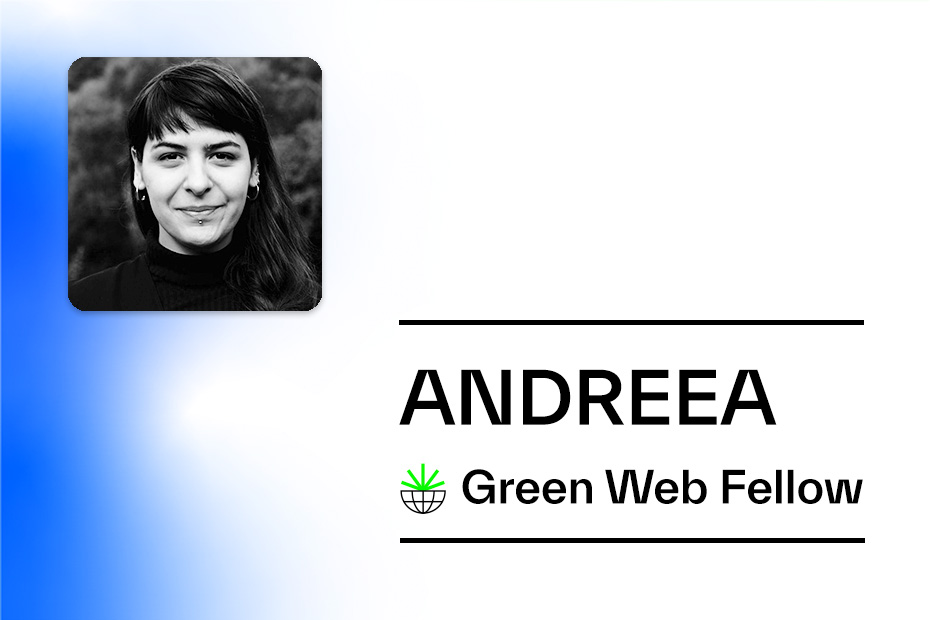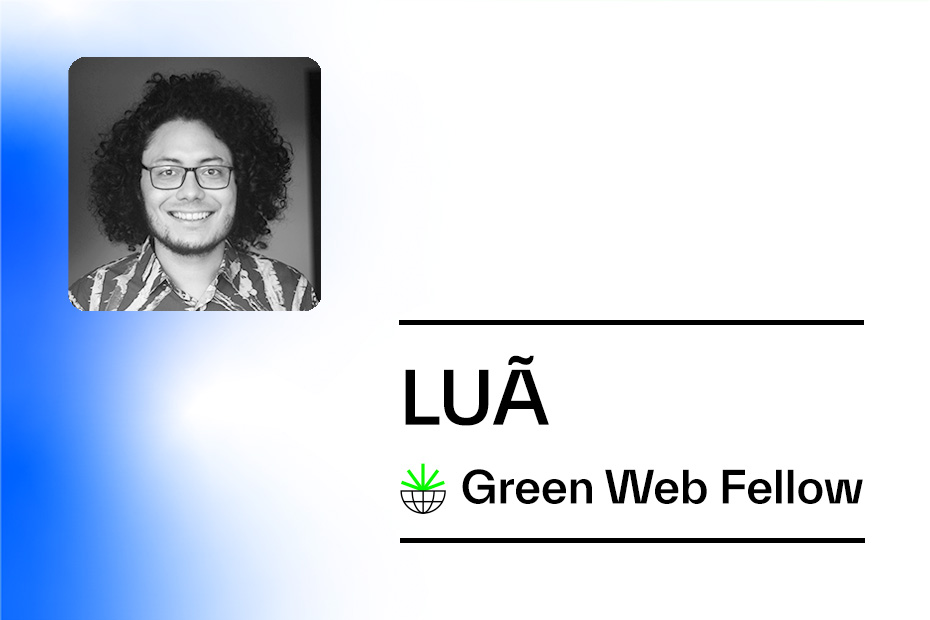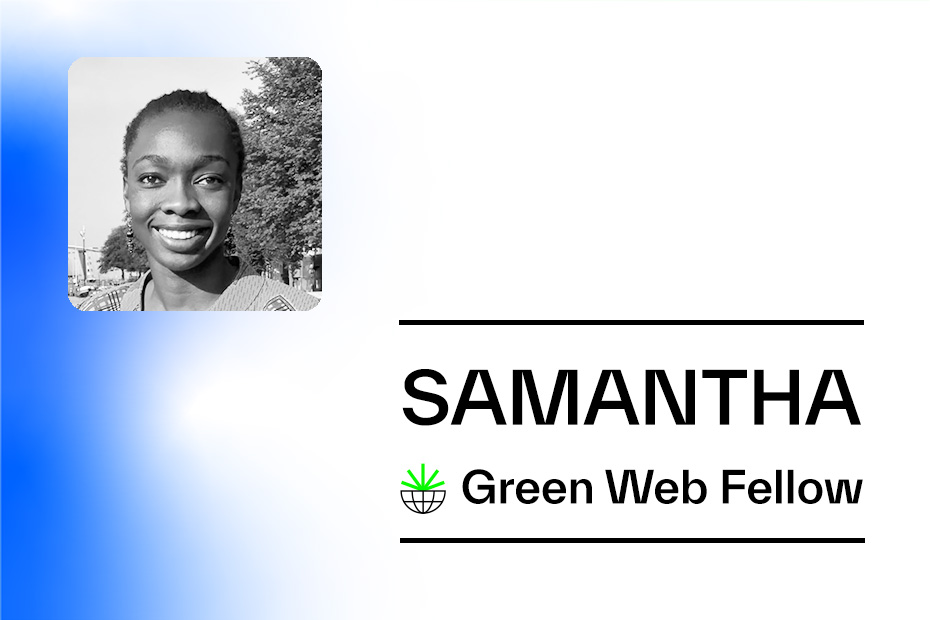How can digital rights funders meaningfully engage in the intersection of climate justice and digital rights? This is a question I have been exploring as part of my Green Web fellowship. Here I worked on a research project and convened digital rights funders to seek how we can frame the climate crisis as a core digital rights issue. This blog is my reflection on the in-person funders meeting that Ariadne, Ford Foundation and Mozilla convened and I co-organized with Michelle Thorne and Maya Richman at the end of April in Lille.
The brief summary is that after spending 1,5 days discussing climate and tech with digital rights funders I realize that there is energy and a feeling of urgency to move this agenda forward. A responsible grantmaking strategy on climate justice and digital rights requires investing in funders’ knowledge and capacity on this intersection and deep dives on specific topics.
The aim of the meeting
As organizers, we hoped that the meeting would be a catalyst for exploring and strengthening grantmaking strategies on climate justice and digital rights. We also hoped that it would kickstart a funder community grounded in advancing people’s rights online and learning to respond to the climate emergency. The aim was to:
- jointly explore the intersection of climate justice and digital rights;
- discuss the recent research findings from The Engine Room and issue briefs;
- identify opportunities to collaborate and move this work forward.
Work leading up to the event
For us, it was important that this conversation was not a one-off, but rather an ongoing dialogue about needs and opportunities of digital rights funders to engage with climate issues. Here, the event built on the research commissioned by Ariadne, Ford Foundation and Mozilla, and followed three initial (remote) funder conversations in 2021.
Prior to the meeting, we interviewed a number of participants and asked them what would make them feel that their time and that of other funders was well spent. Several people noted that they wanted to be brought into the conversation by defining what we mean by digital rights and climate justice, and learning about the different ways they intersect. This included getting a grasp on the harms and opportunities that arise when we bring these two issues together.
A desire to not merely discuss environmental harms of technology but also offer space to re-imagining
People also expressed the desire to be inspired. They wanted to know what is already happening and what funding the intersection of climate and tech can look like. They wanted to learn from peers by having a space for people to share existing work and funding approaches.
The event
For many of the participants this was the first time that they would see each other again since the start of the Covid-19 pandemic. As such, we wanted to give everyone ample space for (re)connecting, discussions and sharing. To this end, we hosted a dinner together with the organizers of the Open Source Infrastructure Funder Convening that happened the day prior to our meeting.
The meeting itself started with a level-setting session. I presented some key insights from deep dives by Association for Progressive Communications (APC), BSR, and the Open Environmental Data Project on different aspects of climate justice and tech. Becky Kazansky presented the landscape analysis of the Engine Room. Also curious about these pieces of research? Stay tuned, the research reports will be published at the end of June.
After the presentations we asked everyone to pair with their neighbours to discuss the following three questions:
- What questions arose for you?
- What do you want to learn more about?
- What’s missing?
The room was buzzing, and the exercise resulted in a number of issue clusters. For example, on the topic of narratives, people asked; ‘how can we shift from doom and gloom to opportunities’ and ‘how do we break growth narratives?’. Or the topic of emerging research agendas; ‘What does green tech really mean?’, ‘Are climate orgs/movements ready or interested in tech beyond digital security?’, and ‘Who are the relevant actors in the energy and climate sectors?’.
The afternoon built on the issue clusters we identified, and we broke out to have thematic conversations. There were different groups discussing narratives, emerging research agendas, open source & climate, funder coordination, and funder interventions.
All through the day, Jon Cracknell of the Hour is Late tried to capture the conversation and integrate it in knowledge and thinking from the climate movement by creating the below diagram. Visualizing how topics such as extractivism, politics of infrastructure, and digital security threats might be an entry point into the conversation on climate and tech, civic action directed at shifting the institutional powers that enable but can also constrain social and environmental injustices operate on a different plane.
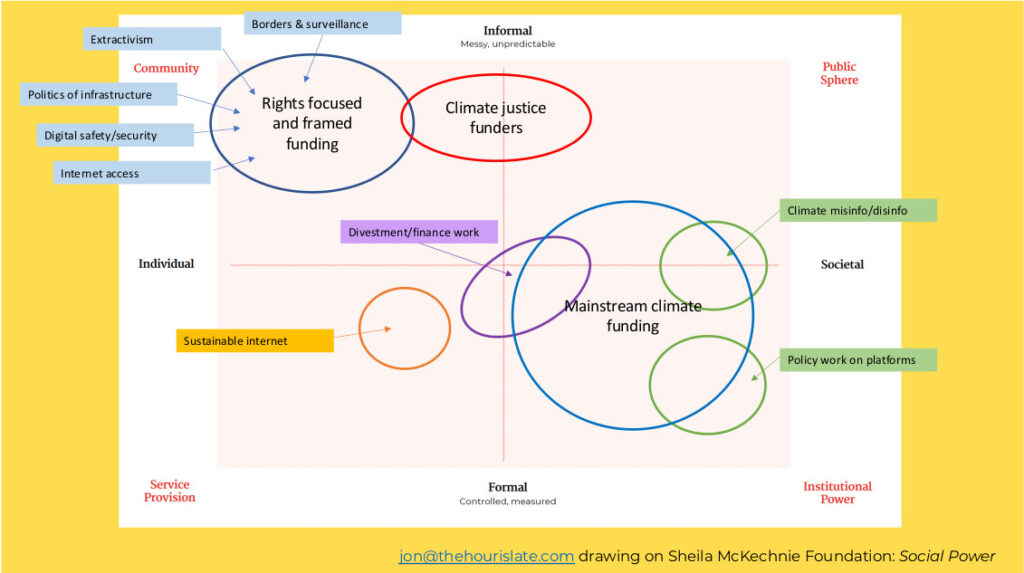
Moving forward
We ended the event with individual reflections on how we can all take the discussions from Lille forward. Our concrete ask; think of small or big ways you can commit to future actions and phrase it in ‘I will’ and ‘We should’. For example, ‘I will share the conversation with their team, organization and/or community. ‘
To give an idea about the commitments, here are some without attribution:
- Move slowly, quickly, and be the people
- Start building alternative visions
- Reconvene as a focussed working group that develops (best) practices for funders
- Keep talking, plan and strategize ways of collaborating, encourage each other to be bold in our commitments
- Work out loud and meet every once in a while to share our lessons learned
- Spread awareness with simplified narratives and examples that others can easily understand (such as the data center image)
- Identify some shared funding priorities and put $ into a pooled fund
Reflections
This was the first time that digital rights funders were in a room together to discuss the climate crisis as a key digital rights issue. Looking back at the event, I’m very proud of what we pulled off. There are a number of takeaways I want to highlight:
There is energy to move this agenda forward
People are ready and interested in having this conversation and starting work on climate and tech. There was a shared sense of urgency, and a commitment to explore what digital rights funding on this intersection looks like.
Moving forward on different planes
There are many ideas for next steps that came out of this meeting. There is a clear desire to invest in:
- Funder coordination – how we can continue to learn from and support each other;
- Deeper thematic explorations – on a number of topics – create space for people to explore more, develop a shared future, and a roadmap for change;
- Bridging to the climate and environmental space – expand the conversation to include colleagues, partners and people working on environmental issues.
Meeting people where they are
On the process: the interviews and discussion leading up to the event really allowed us to tailor the agenda to the needs of our participants. We gained insight into their goals and needs — specifically, what they need to be able to start the conversation on the intersection of climate and tech.
More on next steps soon. Stay tuned.
